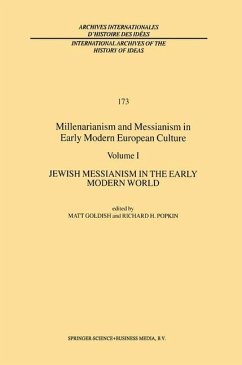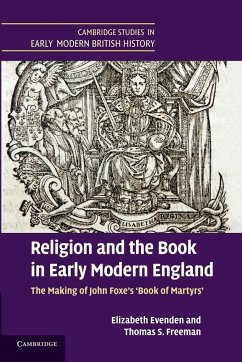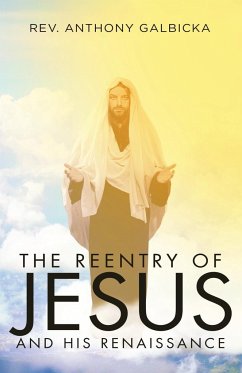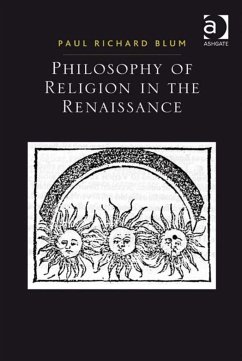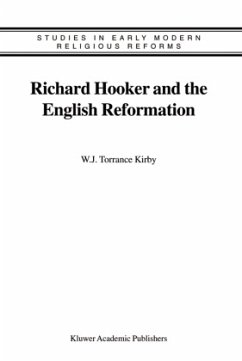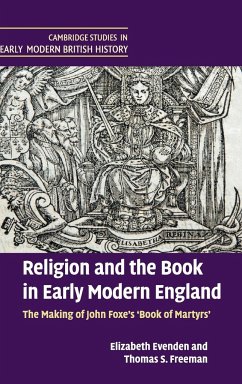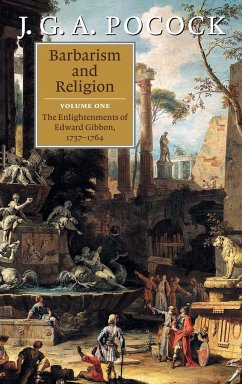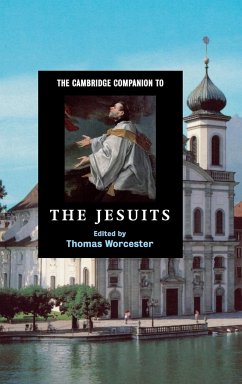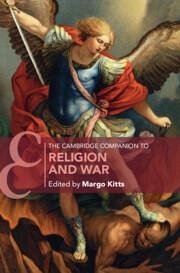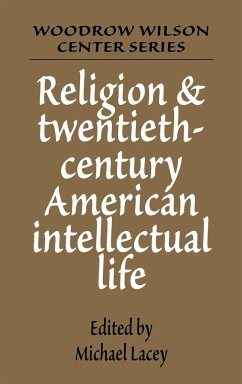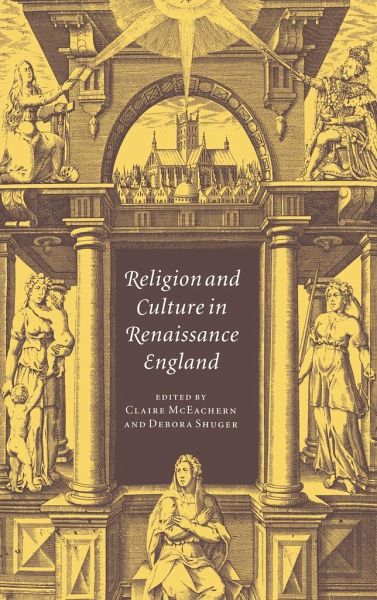
Religion and Culture in Renaissance England

PAYBACK Punkte
55 °P sammeln!
These essays by leading historians and literary scholars investigate the role of religion in shaping political, social, and literary forms, and their reciprocal role in shaping early modern religion, from the Reformation to the Civil Wars. Reflecting and rethinking the insights of new historicism and cultural studies, individual essays take up various aspects of the productive, if tense, relation between Tudor-Stuart Christianity and culture, and explore how religion informs some of the central texts of English Renaissance literature: the vernacular Bible, Foxe's Acts and Monuments, Hooker's L...
These essays by leading historians and literary scholars investigate the role of religion in shaping political, social, and literary forms, and their reciprocal role in shaping early modern religion, from the Reformation to the Civil Wars. Reflecting and rethinking the insights of new historicism and cultural studies, individual essays take up various aspects of the productive, if tense, relation between Tudor-Stuart Christianity and culture, and explore how religion informs some of the central texts of English Renaissance literature: the vernacular Bible, Foxe's Acts and Monuments, Hooker's Laws, Shakespeare's plays and sonnets, the poems of John Donne, Amelia Lanyer, and John Milton. The collection demonstrates the centrality of religion to sixteenth- and seventeenth-century England, and its influence on early modern constructions of gender, subjectivity, and nationhood.
Table of contents:
1. Introduction Claire McEachern; Part I. Form and Community: 2. Biblical rhetoric: the English nation and national sentiment in the prophetic mode Patrick Collinson; 3. 'The noyse of the new Bible': reform and reaction in Henrician England David Scott Kastan; 4. 'Foxe's' Books of Martyrs: printing and popularising the Acts and Monuments Jesse Lander; 5. The place of the stigmata in Christological poetics Lowell Gallagher; 6. 'Society Supernatural': the imagined community of Hooker's Laws Debora Shuger; 7. Hooker in the context of European cultural history William J. Bouwsma; Part II. Literature and Dogma: 8. Pain, persecution, and the construction of selfhood in Foxe's Acts and Monuments Janel N. Mueller; 9. Love's martyrs: Shakespeare's 'Phoenix and Turtle' and the sacrificial sonnets Richard C. McCoy; 10. The gender of religious devotion: Amelia Lanyer and John Donne Michael Schoenfeldt; 11. Othello as protestant propaganda Robert N. Watson; 12. Milton against humility Richard Strier; Index.
Essays by leading historians and literary scholars investigate the role of religion in shaping political, social, and literary forms from the Reformation to the Civil Wars. The collection demonstrates the centrality of religion to early modern constructions of gender, subjectivity, and nationhood.
Essays on the role of religion in shaping political, social and literary forms in Tudor and Stuart England.
Table of contents:
1. Introduction Claire McEachern; Part I. Form and Community: 2. Biblical rhetoric: the English nation and national sentiment in the prophetic mode Patrick Collinson; 3. 'The noyse of the new Bible': reform and reaction in Henrician England David Scott Kastan; 4. 'Foxe's' Books of Martyrs: printing and popularising the Acts and Monuments Jesse Lander; 5. The place of the stigmata in Christological poetics Lowell Gallagher; 6. 'Society Supernatural': the imagined community of Hooker's Laws Debora Shuger; 7. Hooker in the context of European cultural history William J. Bouwsma; Part II. Literature and Dogma: 8. Pain, persecution, and the construction of selfhood in Foxe's Acts and Monuments Janel N. Mueller; 9. Love's martyrs: Shakespeare's 'Phoenix and Turtle' and the sacrificial sonnets Richard C. McCoy; 10. The gender of religious devotion: Amelia Lanyer and John Donne Michael Schoenfeldt; 11. Othello as protestant propaganda Robert N. Watson; 12. Milton against humility Richard Strier; Index.
Essays by leading historians and literary scholars investigate the role of religion in shaping political, social, and literary forms from the Reformation to the Civil Wars. The collection demonstrates the centrality of religion to early modern constructions of gender, subjectivity, and nationhood.
Essays on the role of religion in shaping political, social and literary forms in Tudor and Stuart England.





